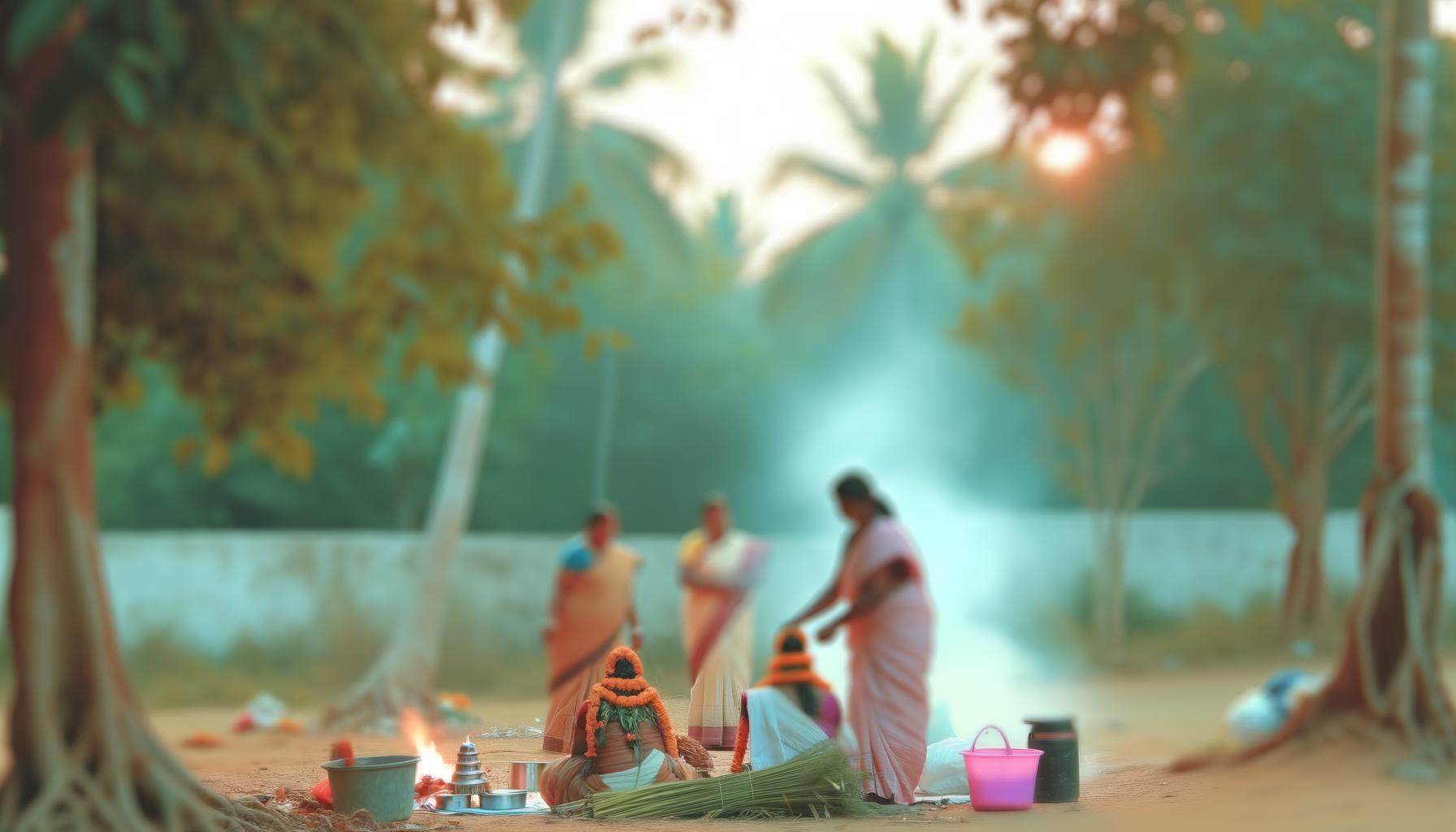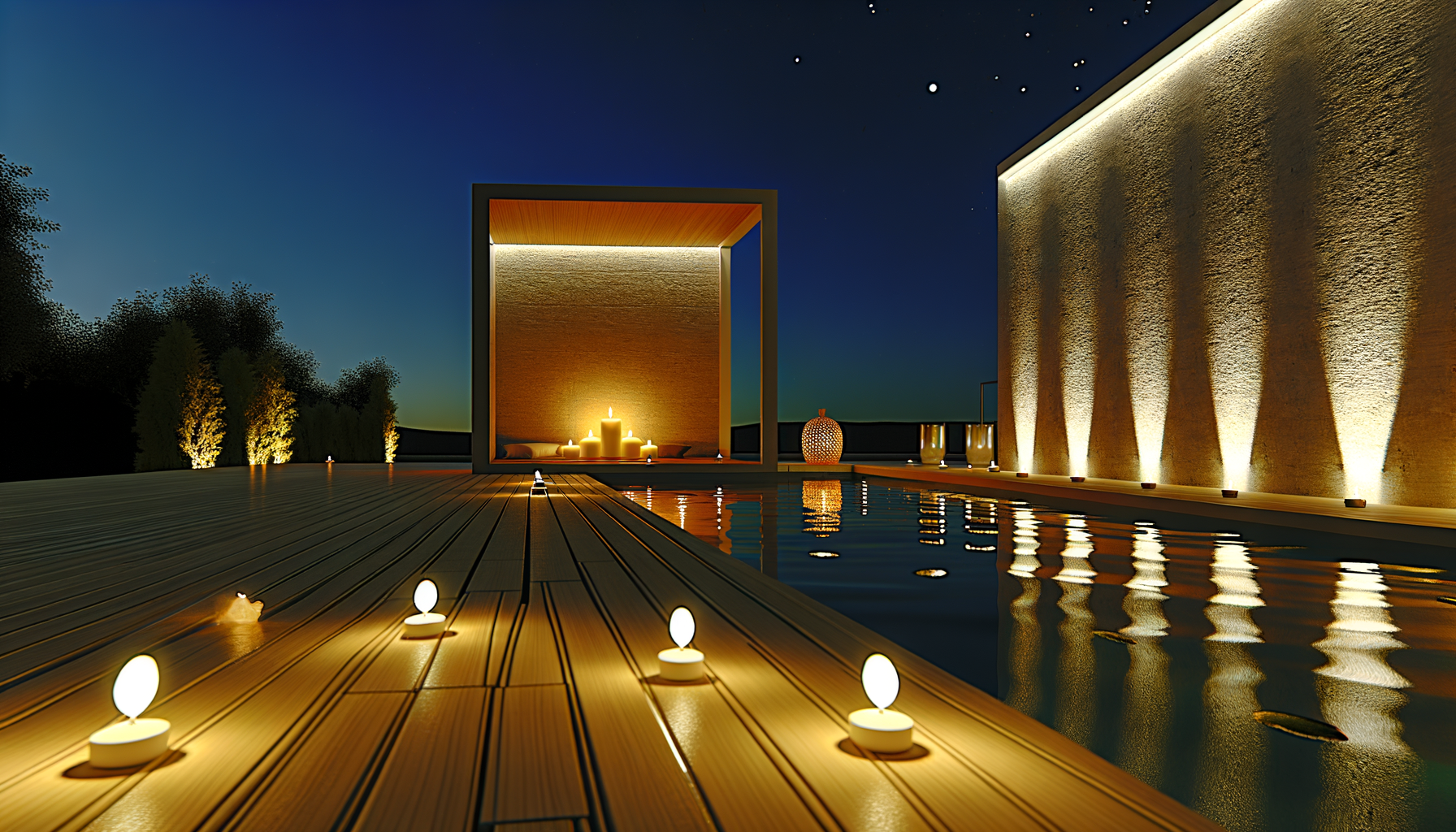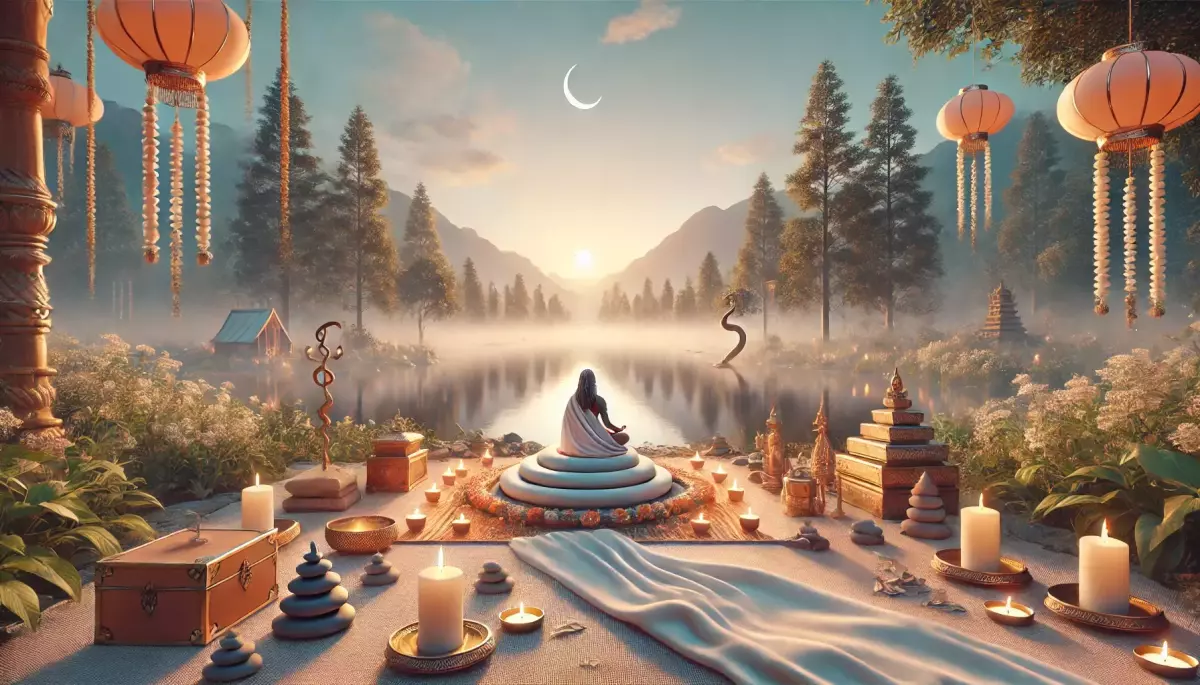Deva Deepavali is a celebration that transcends the simple act of lighting lamps. This festival, which symbolizes the victory of light over darkness, is a moment of spiritual renewal and family unity. With deep roots in Hindu tradition, Deva Deepavali is celebrated with enthusiasm in various parts of the world, especially in India.
During this festivity, people decorate their homes with diwali lights, create colorful rangolis, and gather to offer prayers to the gods. The atmosphere is filled with joy and gratitude, reflecting the importance of family ties and good deeds. Moreover, Deva Deepavali also serves as a moment of reflection on the achievements of the year and the challenges that still lie ahead.
This event is not just a party, but rather an invitation to introspection and the strengthening of relationships. The traditions surrounding Deva Deepavali teach us to value the light that exists within each of us. Therefore, as you celebrate, remember that each lamp lit carries with it a wish for peace and harmony, making this festival truly special.
Meaning and Origin of Deva Deepavali
Deva Deepavali, also known as the "Festival of Lights", is one of the most significant celebrations in Hindu tradition, especially in India. The word 'Deepavali' is derived from Sanskrit, where "Deepa" means light and "Avali" means row. Thus, Deva Deepavali translates to "the row of lights of the gods". The festival is celebrated in the month of Kartika, which corresponds to the months of October and November in the Western calendar, and is considered a festival of great spiritual importance, symbolizing the victory of light over darkness and good over evil.
The origin of Deva Deepavali dates back to various mythological stories, the most popular being the one that connects the festival to the victory of Lord Rama over the demon Ravana, as narrated in the epic Ramayana. On the night of Deva Deepavali, it is believed that the gods, including Lord Shiva and Parvati, descend to Earth to bless their devotees. Furthermore, many believe that the lighting of lamps during this festival helps guide lost souls to the light, symbolizing hope and spiritual renewal.
Full Calendar of Divine Diwali until 2050
| Year | Next Date |
|---|---|
| Divine Diwali in 2025 | 10/22/2025 |
| Divine Diwali in 2044 | 10/22/2044 |
| Divine Diwali in 2033 | 10/23/2033 |
| Divine Diwali in 2022 | 10/24/2022 |
| Divine Diwali in 2041 | 10/25/2041 |
| Divine Diwali in 2030 | 10/27/2030 |
| Divine Diwali in 2049 | 10/27/2049 |
| Divine Diwali in 2038 | 10/28/2038 |
| Divine Diwali in 2027 | 10/30/2027 |
| Divine Diwali in 2046 | 10/30/2046 |
| Divine Diwali in 2035 | 10/31/2035 |
| Divine Diwali in 2024 | 11/01/2024 |
| Divine Diwali in 2043 | 11/02/2043 |
| Divine Diwali in 2032 | 11/03/2032 |
| Divine Diwali in 2021 | 11/04/2021 |
| Divine Diwali in 2040 | 11/04/2040 |
| Divine Diwali in 2029 | 11/06/2029 |
| Divine Diwali in 2048 | 11/07/2048 |
| Divine Diwali in 2037 | 11/08/2037 |
| Divine Diwali in 2026 | 11/10/2026 |
| Divine Diwali in 2045 | 11/10/2045 |
| Divine Diwali in 2034 | 11/11/2034 |
| Divine Diwali in 2023 | 11/12/2023 |
| Divine Diwali in 2042 | 11/13/2042 |
| Divine Diwali in 2020 | 11/14/2020 |
| Divine Diwali in 2031 | 11/15/2031 |
| Divine Diwali in 2050 | 11/15/2050 |
| Divine Diwali in 2039 | 11/16/2039 |
| Divine Diwali in 2028 | 11/17/2028 |
| Divine Diwali in 2047 | 11/18/2047 |
| Divine Diwali in 2036 | 11/19/2036 |
Traditional Rituals and Ceremonies
The rituals of Deva Deepavali are varied and rich in symbolism. One of the main acts is the performance of pujas (worship rituals) in temples and homes, where devotees offer flowers, fruits, and sweets to the gods. The ceremonies usually begin with the cleaning of the house, which is seen as a spiritual and physical preparation to receive divine blessings. In many communities, people also place rangoli (art patterns made with colored powder) at the entrance of their homes as a form of welcome.

Another important ritual is the lighting of diyas, small oil lamps made of clay. These lamps are lit at dusk and placed in windows, balconies, and gardens, creating a stunning spectacle of lights. Devotees recite prayers and hymns, asking for protection and prosperity. In addition, the festival often includes the exchange of gifts and the gathering of family and friends, strengthening community and family ties.
Decorations and Lights: The Magic of the Festival
The decoration during Deva Deepavali is an essential part of the celebration, reflecting the joy and spirit of the festival. Cities and villages transform into a spectacle of lights and colors, with streets and houses adorned with lamps, candles, and bright decorations. The illuminations create a magical atmosphere, attracting tourists and locals to participate in the festivities. The decorations are not limited to lights; many also use flowers, colorful fabrics, and traditional art to beautify their homes.
The festivities also include the display of fireworks, which are a popular tradition during Deva Deepavali. The explosions of colors in the night sky symbolize the joy and celebration of the victory of good over evil. However, it is important to note that, in some areas, there is a growing movement for more sustainable celebrations, promoting the use of eco-friendly fireworks to minimize environmental impact and preserve public health.
Typical Foods and Delicacies of Deva Deepavali
Cuisine plays a fundamental role in the celebrations of Deva Deepavali. During this festival, homes are filled with delicious aromas, with the preparation of a variety of traditional dishes. Gulab jamun, a sweet made from milk powder and fried, soaked in sugar syrup, is a favorite. Another popular dish is ladoo, made from chickpea flour, which is shaped into small balls and often offered to the gods during the pujas.

In addition to sweets, savory dishes are also prepared, such as samosas and pakoras. These snacks are often served during family gatherings and parties, promoting a spirit of sharing and unity. The festivities of Deva Deepavali are an opportunity for families to come together, share recipes, and celebrate the rich culinary culture of India, where each region brings its unique specialties and flavors.
Celebrations and Festivities in Different Regions of India
The celebrations of Deva Deepavali vary significantly among the different regions of India, reflecting the cultural diversity of the country. In northern India, for example, the festival is often associated with Lord Rama's return to Ayodhya after his victory over Ravana. Cities are filled with lights and fireworks, and people hold large public celebrations. In some regions, the festivity is marked by folk dances and theatrical performances that recount the story of Rama.
In southern India, Deva Deepavali is celebrated with a special focus on domestic rituals and worship of Lakshmi, the goddess of wealth and prosperity. Homes are adorned with rangoli and diyas, and families perform elaborate pujas to receive the blessings of the goddess. Additionally, food plays a central role in the celebrations, with specific regional dishes being prepared and shared among friends and family.
In western India, especially in Maharashtra, the festival is known as "Chhoti Diwali" and includes distinct traditions, such as the worship of different deities and the preparation of typical regional dishes. In the eastern region, Deva Deepavali is celebrated in a more subdued manner, with a greater emphasis on spiritual rituals. Despite the variations, the essence of the festival remains the same: the celebration of light, spirituality, and family unity.
Summary and Considerations
Deva Deepavali is a celebration rich in symbolism and spirituality, bringing communities together in vibrant and illuminated festivities. This festival, known as the Festival of Lights, not only marks the victory of good over evil but also the renewal of hope and family unity. During Deva Deepavali, homes are adorned with lights, diyas, and rangoli, creating an atmosphere of joy and peace.
It is essential to understand that Deva Deepavali transcends superficial traditions. It represents moments of reflection, gratitude, and the pursuit of harmony in our lives. Religious practices, such as the worship of Lakshmi, the goddess of wealth, are fundamental. Moreover, the exchange of gifts and sweets reinforces social and familial bonds, promoting a sense of community.
Furthermore, Deva Deepavali is an invitation for all of us to reflect on our actions and the importance of cultivating inner light. As we light the lamps, we symbolize the hope for a bright future filled with prosperity.
In conclusion, Deva Deepavali is more than just a simple festivity; it is an opportunity for spiritual and social renewal. By celebrating it, we are not only honoring traditions but also promoting universal values of love and unity. May this festival illuminate the path to a future filled with joy!
